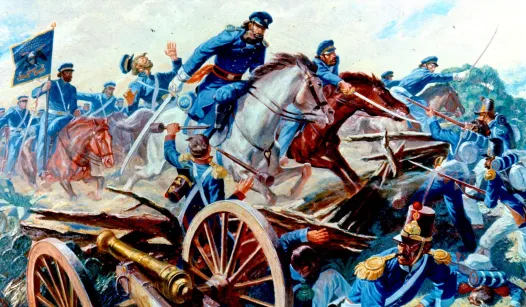The U.S.-Mexican War, fought between 1846 and 1848, is often overshadowed by other conflicts in American history. Despite its significant impact on the territorial expansion of the United States and its long-lasting effects on U.S.-Mexico relations, this war has remained largely forgotten in the public consciousness. As we reflect on our nation’s history, it is crucial to recognize the importance of this conflict and advocate for the establishment of a memorial dedicated to those who fought and the events that shaped our nation.
The U.S.-Mexican War resulted in the acquisition of vast territories, including present-day California, Arizona, New Mexico, Nevada, Utah, and parts of Colorado and Wyoming. This expansion was driven by the ideology of Manifest Destiny, the belief that the United States was destined to expand across the North American continent. However, this expansion came at a significant cost, including the loss of life and the displacement of numerous communities.
Recognizing this war through a dedicated memorial would serve multiple purposes. First and foremost, it would honor the sacrifices made by soldiers and civilians alike. Thousands of American soldiers lost their lives during the conflict, and many more were wounded. Additionally, the war had profound effects on Mexican citizens, with countless lives disrupted and communities torn apart. A memorial would acknowledge the far-reaching consequences of the war and provide a space for reflection and remembrance.
Moreover, a U.S.-Mexican War memorial could serve as an educational resource. Many Americans are unaware of the complexities of this conflict and its implications for modern U.S.-Mexico relations. By establishing a memorial, we would create an opportunity for education and dialogue about the historical context of the war and its lasting effects on both nations. This could foster a greater understanding of the shared history between the United States and Mexico, promoting reconciliation and cooperation in the present day.
In addition to honoring the past, a memorial could also serve as a symbol of hope for the future. The U.S.-Mexican relationship has been marked by both cooperation and conflict over the years. By acknowledging the shared history of these two nations, we can work towards building a more collaborative and respectful partnership moving forward. A memorial could embody the commitment to learning from our history and striving for a better future together.
There is a growing movement advocating for the establishment of a U.S.-Mexican War memorial. Various organizations and individuals have begun to raise awareness about the importance of this initiative, emphasizing the need for recognition and remembrance. By designating a memorial, Congress would not only honor those who fought but also acknowledge the complexities of our shared history.
In conclusion, the U.S.-Mexican War is a pivotal chapter in American history that deserves recognition and remembrance. Establishing a memorial dedicated to this conflict would honor the sacrifices made, promote education and dialogue, and symbolize a commitment to a more cooperative future. As we strive to understand our past, it is vital to ensure that the stories of those who fought and the lessons learned from this war are not forgotten. It is time for Congress to take action and designate a U.S.-Mexican War memorial, ensuring that this important piece of history is acknowledged and honored for generations to come.
